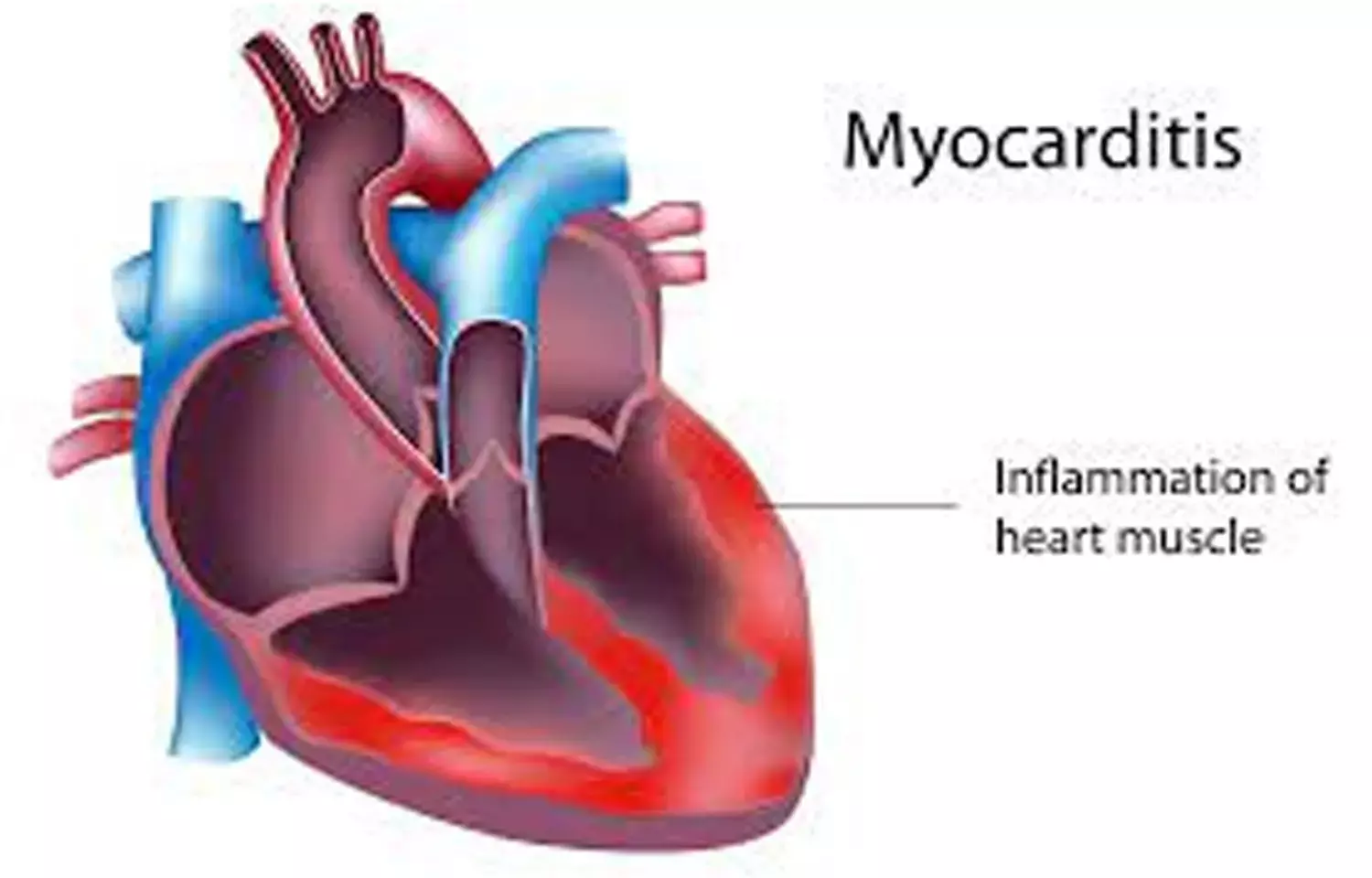- Home
- Medical news & Guidelines
- Anesthesiology
- Cardiology and CTVS
- Critical Care
- Dentistry
- Dermatology
- Diabetes and Endocrinology
- ENT
- Gastroenterology
- Medicine
- Nephrology
- Neurology
- Obstretics-Gynaecology
- Oncology
- Ophthalmology
- Orthopaedics
- Pediatrics-Neonatology
- Psychiatry
- Pulmonology
- Radiology
- Surgery
- Urology
- Laboratory Medicine
- Diet
- Nursing
- Paramedical
- Physiotherapy
- Health news
- Fact Check
- Bone Health Fact Check
- Brain Health Fact Check
- Cancer Related Fact Check
- Child Care Fact Check
- Dental and oral health fact check
- Diabetes and metabolic health fact check
- Diet and Nutrition Fact Check
- Eye and ENT Care Fact Check
- Fitness fact check
- Gut health fact check
- Heart health fact check
- Kidney health fact check
- Medical education fact check
- Men's health fact check
- Respiratory fact check
- Skin and hair care fact check
- Vaccine and Immunization fact check
- Women's health fact check
- AYUSH
- State News
- Andaman and Nicobar Islands
- Andhra Pradesh
- Arunachal Pradesh
- Assam
- Bihar
- Chandigarh
- Chattisgarh
- Dadra and Nagar Haveli
- Daman and Diu
- Delhi
- Goa
- Gujarat
- Haryana
- Himachal Pradesh
- Jammu & Kashmir
- Jharkhand
- Karnataka
- Kerala
- Ladakh
- Lakshadweep
- Madhya Pradesh
- Maharashtra
- Manipur
- Meghalaya
- Mizoram
- Nagaland
- Odisha
- Puducherry
- Punjab
- Rajasthan
- Sikkim
- Tamil Nadu
- Telangana
- Tripura
- Uttar Pradesh
- Uttrakhand
- West Bengal
- Medical Education
- Industry
Benefits of COVID-19 vaccination outweigh risks of rare cases of myocarditis: Study

DALLAS - The benefits of the COVID-19 vaccine outweigh the low risk of developing myocarditis after receiving the COVID-19 vaccine, according to research published today in Circulation, the flagship journal of the American Heart Association
Last month, the U.S. Centers for Disease Control and Prevention (CDC) identified a "likely association" between the two COVID-19 mRNA vaccines, from Pfizer-BioNTech and Moderna, and cases of suspected myocarditis and pericarditis. Most of the suspected cases of myocarditis developed after the second dose of a COVID-19 vaccine and were among younger males (between the ages of 12-39 years).
Researchers conducted an analysis of data from the CDC's Vaccine Adverse Event Reporting System (VAERS) and from multiple peer-reviewed scientific journal articles to compare vaccination rates to reports of myocarditis among people who received the COVID-19 vaccine through mid-June 2021. The analysis found:
- Most people suspected to have myocarditis presented with chest pain, usually 2-3 days after a second dose of a COVID-19 mRNA vaccination.
- Some people suspected to have myocarditis experienced fever and muscle pain the day after their vaccination.
- Those affected and requiring hospitalization for suspected myocarditis were mostly young males (ages 12-19) without a prior history of COVID-19 or other health conditions.
- All tested negative for COVID-19.
- Most patients were discharged from the hospital as their symptoms, diagnostic and imaging signs of the condition returned to normal, either with or without treatment.
According to the CDC data pulled by the researchers for this report, as of June 23, 2021, more than 177 million people in the U.S. had received at least one dose of a COVID-19 vaccine. The rates of suspected myocarditis/pericarditis were approximately 12.6 cases per million doses of the second dose of a COVID-19 mRNA vaccine among 12–39 year-olds as of June 5, 2021, according to data from the CDC's Vaccine Safety Dataline.
The researchers also conducted a prevention analysis by comparing the rate of suspected myocarditis to the prevention of COVID-19, COVID-19-associated hospitalization, COVID-19 ICU admission and COVID-19-related death. The benefit-risk assessment indicates that the benefits of the COVID-19 vaccine outweigh the risk of myocarditis. The research group concluded:
- There is a "known potential risk of complications with COVID-19 infection, including hospitalizations and death, even in younger adults (mortality remains 0.1-1 per 100,000 for persons aged 12-29 years);
- The risk-benefit decision remains overwhelmingly favorable for vaccination; therefore COVID-19 vaccination is currently recommended for everyone 12 years of age and older.
- COVID-19 vaccination not only prevents COVID-19-related hospitalizations and death, but also COVID-19 related complications such as myocarditis, multisystem inflammatory syndrome (MIS) and post-acute sequelae (i.e., consequences) of SARS-CoV-2 infection or long COVID-19."
The researchers recommend that clinicians should be aware of the potential for myocarditis and pericarditis, which should be considered in individuals presenting with chest pain within a week after receiving a COVID-19 vaccine, especially among adolescents, teens and young adults.
Further analysis of this study investigated some of the possible clinical mechanisms causing myocarditis after COVID-19 vaccination, however, the authors noted more research is needed.
Hina Zahid Joined Medical Dialogue in 2017 with a passion to work as a Reporter. She coordinates with various national and international journals and association and covers all the stories related to Medical guidelines, Medical Journals, rare medical surgeries as well as all the updates in the medical field. Email: editorial@medicaldialogues.in. Contact no. 011-43720751
Dr Kamal Kant Kohli-MBBS, DTCD- a chest specialist with more than 30 years of practice and a flair for writing clinical articles, Dr Kamal Kant Kohli joined Medical Dialogues as a Chief Editor of Medical News. Besides writing articles, as an editor, he proofreads and verifies all the medical content published on Medical Dialogues including those coming from journals, studies,medical conferences,guidelines etc. Email: drkohli@medicaldialogues.in. Contact no. 011-43720751


